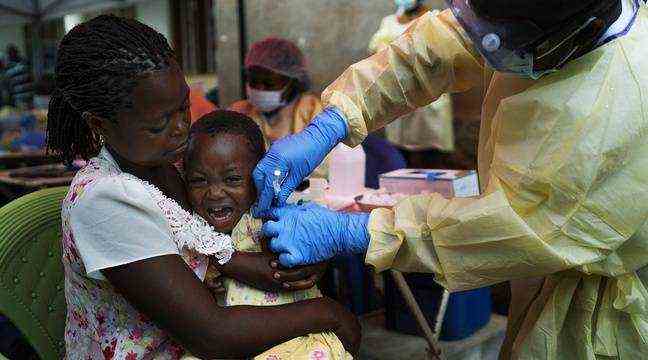The operation to vaccinate health sector workers against the Ebola virus began Monday in Côte d’Ivoire where a case was detected a few days ago in Abidjan, the first for nearly 30 years.
From the stretcher bearer to the professor of medicine, dozens of health personnel received doses of vaccine during this operation which took place in the University Hospital Center (CHU) of Cocody, a district of Abidjan.
Priority vaccination of health personnel
Côte d’Ivoire has received 5,000 doses of Ebola vaccine from Guinea and “will vaccinate health personnel, close relatives of the victim and his contacts,” Germain Mahan Séhi, member of the cell, told AFP. ministry communication.
Ivorian health sources had indicated that the first vaccinations of “target groups” had started on Sunday.
These vaccinations start after “the training (…) of several dozen vaccine agents in the presence of five experts from the WHO (World Health Organization) from neighboring Guinea”, which was severely affected from 2013 to 2016 and where the virus reappeared in 2021.
Ebola a viral and very lethal disease
On Saturday, the Ivorian health authorities were informed by the Pasteur Institute “of a positive case of Ebola virus disease after examination of a sample taken” the day before “from a young girl aged 18 of Guinean nationality”.
“It is extremely worrying that this epidemic has been declared in Abidjan, a metropolis of more than four million inhabitants,” said Matshidiso Moeti, WHO regional director for Africa, in a statement.
“There is no evidence that the case detected in Côte d’Ivoire is linked to the recent epidemic outbreak that affected Guinea “, Estimates the WHO. “Further investigation and genomic sequencing will identify the strain of the virus and determine if there is a link.”
Ebola is an often fatal viral disease that affects humans and other primates. “Case fatality rates have varied from 25 to 90% in previous epidemics” according to the WHO. “Nevertheless, there is now an effective treatment, and if patients are managed at an early stage of the disease, along with supportive care, their chances of survival often improve.”

